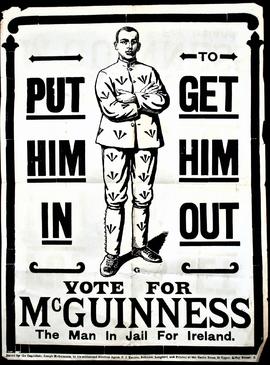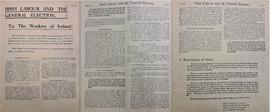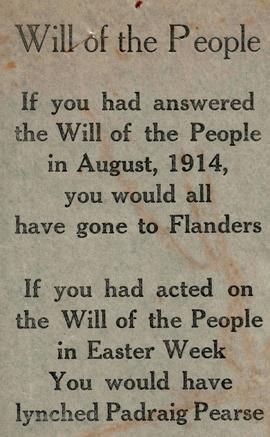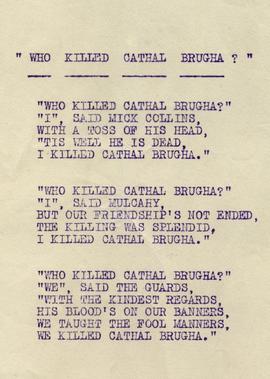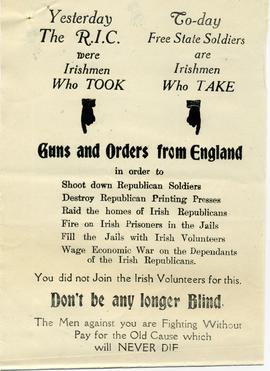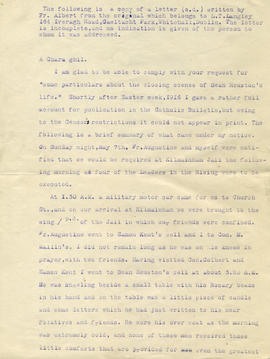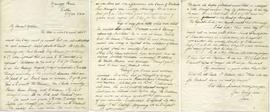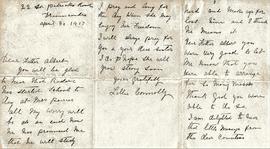Letter from Liam Mellows, Mountjoy Prison, Dublin, to his mother. Written at 5 a.m., shortly before his execution. It reads: ‘The time is short and much I would like to say must go unsaid. But you will understand in such moments heart speaks to heart. At 3.30 this morning we (Dick Barrett, Rory O’Connor, Joe McKelvey and I) were informed that we were to be “executed as a reprisal”. … I go to join Tone and Emmett, the Fenians, Tom Clarke, Connolly, Pearse, Kevin Barry and Childers. My last thoughts will be on God, and Ireland, and you. …. I had hopes that some day I might rest in some quiet place – beside Grandfather and Grandmother in Castletown (Co. Wexford), not amidst the wordly pomps [sic] of Glasnevin but if it is to be the prison clay, it is all the sweeter for many of our best lie here …’.

